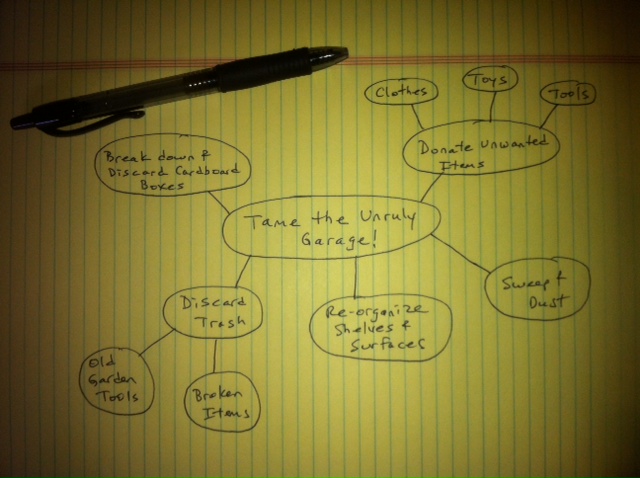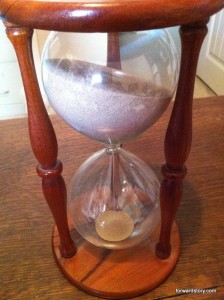Coaches are everywhere. It is difficult to find a domain where coaches are not present.
- Football Coach

- Track Coach
- Golf Coach
- Tennis Coach
- Debate Coach
- Job Coach
- Executive Coach
- Career Coach
Even if the title “coach” is not applied, often a person is still functioning as a coach. Sometimes we use the words “mentor” and “teacher” to refer to a coach.
What does it mean to coach, and why is it so important? To coach is to instruct, direct, train intensively, and to demonstrate. If you want to learn some new practice or activity that is not natural, you will learn faster and become better if you have a competent coach who can show you how to do it. Perhaps you want to learn to play golf. There is nothing natural about playing golf. How should you grip the club? Which club should you use? How is the golf swing started? What about the stance? Where should the ball be placed relative to your feet? How do you putt the ball? All of these questions and hundreds more need to be answered in order to become a good golfer. Not only do you need to know the answers to these questions, you need to actually practice doing them. Golf is a physical game that requires you actually golf. So, in addition to telling you how to do something and demonstrating how to do it, a coach also trains you. That is, she has you practice the behavior over and over until you do it right. Depending on what you are learning, the coach can be very demanding. This is the reason coaches are often viewed as strong leaders and disciplinarians. They train, direct, and instruct.
You Have to Want It
The truth is that no coach can coach you if you do not want to be coached. If your coach has told you to go run stairs to improve your fitness level, you will only run those stairs if you choose to do it. If you choose not to run those stairs when the coach has directed you to do it, there may well be consequences. For instance, you may be removed from the team. Or, you may simply not get to play. But, that is your choice and your right (at least in environments with individual liberties to choose). So, even though we may gripe and complain about how unreasonable the coach is being, ultimately we choose to be coached because we think it is important to achieve our ambition.
Have you noticed that it is not only the beginner that gets coached? The teams that are at the top of the sports world have coaches. Professional teams have the highest paid coaches. What this demonstrates is that coaching is vital in not only learning the basics, it is vital in learning how to achieve higher and higher levels of expertise. If this were not the case, the world’s greatest golfers would just direct their own practices and analyze their own swings. The better the player, the better coach he or she demands. This is because those players recognize the need for coaching and they want it. If they did not want it, they would not submit to coaching.
Competent Coaches
Unfortunately, not everyone that desires to coach is very good at it. If the golf coach you select doesn’t know much about golf or doesn’t know how to effectively teach you the game, how will that impact you? You will learn wrong information, develop bad habits, and likely not achieve your ambition. This is why it is so important to select your coaches carefully. Not everyone that wants to coach you is competent to do so. If you are a middle school athlete, you don’t have a choice about who coaches you. If you want to play, you get the coaches that the school has assigned to coach you. Many of those coaches are outstanding, but some of them are still learning themselves how to coach.
Let’s move from school coaching and athletics to other domains of coaching. As stated at the outset, there are executive coaches, career coaches, and coaches for many different professional ambitions. If your ambition is to be a great sales professional, you need to select a great sales coach. You need someone competent to coach effective selling philosophy and to help you develop good selling behaviors. It is extremely important that you select someone with a proven track record of success. You need competency and effectiveness. How do you find it? The same way you select the hiring of a key employee or the purchase of an expensive car or piece of capital equipment. You do your “due diligence.”
Due Diligence
The concept of due diligence is well established in business and law. The term refers to a process of research, conversation, and discovery by which you get to the real truth. If you are looking to purchase a business from someone, you need to know the true status of the business, not just the pretty photos and the company narrative. You need to look into the books to see what the revenues and expenses are. You need to see the balance sheet to understand the company’s assets and liabilities. You need to speak to employees and customers to gauge the company’s strengths and weaknesses. Before you spend your money to buy this business, you need to be sure you have done your homework.
The decision about who will coach you deserves the same level of scrutiny. There are three important ways to search for a competent coach:
- Internet. As with most research these days, it will probably involve the internet. There is a wealth of information at click of a SEARCH button.
- Network. Speak to the people in your network about the subject of coaching. Find those people who are the best at what you want to do and ask them if they use coaches. Ask for specific names of coaches that they recommend.
- Interview. Once you have identified potential coaches, schedule an appointment to discuss their services. Plan your questions before you meet, and treat it like an employment interview. In a way it is. You will want to know his coaching philosophy, formal instruction methods, and costs. Don’t forget that a great coach can help you achieve levels that you never before thought possible, so while cost is important, the cheapest is not necessarily the best.
People who are serious about their careers, sports, or other endeavors look for the best coaches. Hopefully your Forward Story will include the need for and commitment to personal growth in one or more fields of endeavor. If so, having a great coach can be a vital ingredient. The best coaches are competent and have a track record. Make it your goal to find a great coach to help you achieve your ambition.











